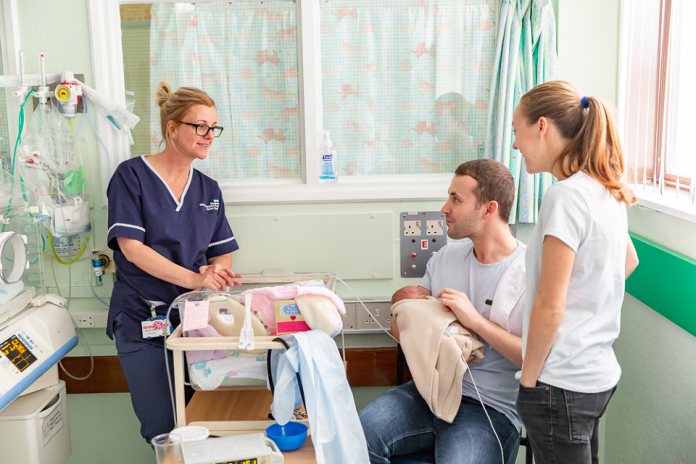- Patient Safety Minister Nadine Dorries announces a £500,000 fund for innovative NHS maternity leadership training
- Senior maternity and neonatal leaders from around 126 NHS trusts and 44 local maternity units will benefit
- The training will aim to apply lessons learned both from the pandemic and maternity safety inquiries, including the Ockenden Review – and help overcome disconnect between ‘ward and board’
Hundreds of NHS maternity and neonatal leaders in England will benefit from a new £500,000 maternity leadership programme to train staff across 126 Trusts and 44 local maternity systems.
The programme will be rolled out later this year and will equip maternity leaders with the skills and knowledge to improve workplace culture and facilitate greater collaborative working between nurses, doctors, midwives and obstetricians.
The issue of leadership was identified as a key factor in Donna Ockenden’s independent review into cases of neglect and preventable baby deaths at Shrewsbury and Telford NHS Trust.
The review highlighted the issue of disconnect between ‘ward and board’ in maternity services and the importance of multi-disciplinary training, escalating concerns to senior leaders, and applying lessons learned from serious incidents.
Patient Safety Minister Nadine Dorries said:
The shocking and tragic findings of the Ockenden Review highlighted the importance of strengthening maternity leadership and oversight as well as fostering more collaborative approaches within maternity and neonatal services.
I’m pleased to announce a new training programme for NHS maternity leaders, which will empower nurses, midwives and obstetricians to get the best out of their teams, and deliver safe, world-class care to mothers and their babies.
Midwifery leadership has already been strengthened with the appointment last year of 7 regional chief midwives who will work with local maternity services to provide safer and more personal care for women, babies and their families.
This is in addition to frontline maternity safety champions in every trust, including one obstetrician, midwife and neonatologist, who work closely with a board maternity safety champion to promote seamless communication across disciplines.
The new leadership programme will provide training and ongoing support for 700 people including NHS trust board safety champions, heads of midwifery, clinical directors of neonatal and clinical directors of midwifery, leaders of local maternity systems and regional chief midwives.
The programme training sessions will help maternity leaders to develop a number of skills, including:
- effective engagement with service users and families
- providing a deep understanding at trust board level of the support required for safe and personalised maternity and neonatal services
- enabling effective clinical leadership at all levels across the system, supporting and enabling leaders to identify and address potential improvements
- how to support local systems to not only react but also anticipate risk and support the improvements required
- knowledge and understanding of the critical components of a learning system:
- leading the learning system
- psychological safety
- accountability and negotiation
- continuous learning
- reliability
- transparency
- quality improvement methodology and measurement
- developing the capability for safety and quality improvement across organisations and the local system drawing on tools, methodologies and case studies
- effective utilisation of learning from episodes of error, excellence and near misses
Alongside the programme, a new core curriculum for professionals working in maternity and neonatal services is being developed by the Maternity Transformation Programme in partnership with professional organisations, clinicians and service users to address variations in skills and safety training across England.
A single core curriculum will help the workforce to bring a consistent set of updated safety skills as they move between services and trusts.
Professor Jacqueline Dunkley-Bent, Chief Midwifery Officer for England, also wrote to NHS trusts yesterday detailing a new network of advocates who will ensure the voices of mothers and families are heard.
Background information
The independent Ockenden review published at the end of last year was established to ensure families get the answers they deserve, and lessons are learnt from every tragic case, so no family has to suffer the same pain in future.
NHS England and NHS Improvement will ensure the trust and wider maternity service learn from these cases of harm and give patients the reassurance that they will receive safe, high-quality care at all times.







